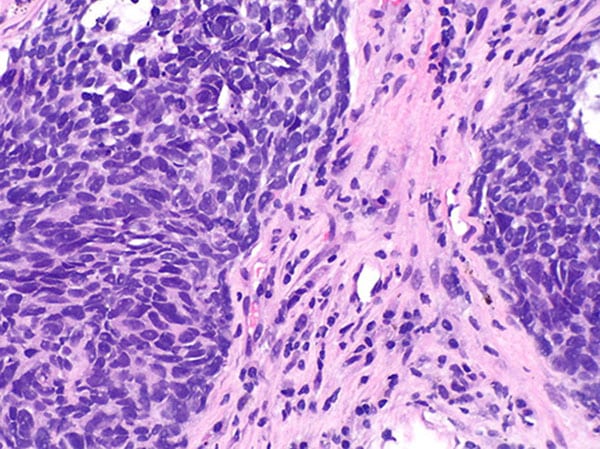Full Approval for a Targeted Lung Cancer Drug
The FDA granted full approval to selpercatinib for the treatment of patients with advanced lung cancer.
The U.S. Food and Drug Administration (FDA) has approved selpercatinib (Retevmo) for the treatment of patients with locally advanced or metastatic non-small cell lung cancer (NSCLC) whose tumors express a fusion protein involving the RET kinase. The FDA granted an accelerated approval to selpercatinib for these indications in 2020.
Selpercatinib is in a class of drugs known as kinase inhibitors, which block certain cell signaling pathways that promote tumor growth. Selpercatinib blocks the kinase RET, which can become aberrantly activated or overexpressed in tumors due to a fusion between part of the RET gene and part of another gene.

Concurrent with the approval of selpercatinib, the FDA also approved a diagnostic test, called Oncomine Dx Target, to determine a patient’s eligibility for selpercatinib by checking tumor tissue for a RET fusion. The test sequences small fragments of RNA to evaluate whether part of the RET gene is attached to another gene.
The full approval was based on an expansion of data from the multicenter, open-label, multi-cohort LIBRETTO-001 clinical trial, which included an additional 172 patients and 18 months of follow up compared with the data available at the time of accelerated approval. In total, the study treated 316 patients with RET fusion-positive NSCLC with selpercatinib, 69 of whom had not received prior treatment and 247 of whom were previously treated with a platinum-based chemotherapy.
Among treatment-naïve patients, the overall response rate was 84 percent, with a median response duration of 20.2 months. Among previously treated patients, the overall response rate was 61 percent, with a median response duration of 28.6 months.
It was estimated that 236,740 individuals in the U.S. would be diagnosed with lung cancer in 2022, and over 130,000 would die of the disease. Over 80 percent of lung cancer cases are classified as NSCLC, 1 to 2 percent of which have RET fusion mutations.
The FDA rendered its decision on September 21, 2022.
